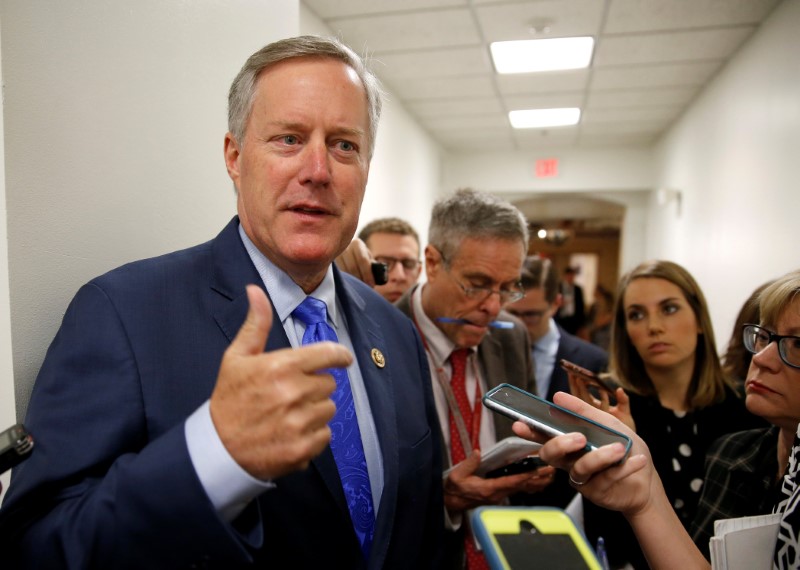WASHINGTON (Reuters) - Members of the House Freedom Caucus called on congressional leaders Friday to introduce a formal tax reform proposal by the end of July, and suggested they could support a 2018 budget deal in exchange for adding welfare reform to any tax overhaul.
The conservative bloc, which has enough members to stymie legislation in the Republican-controlled House of Representatives, will play a key role in efforts to agree on a 2018 fiscal plan that could determine whether President Donald Trump and Congress can deliver the biggest tax reform since the Reagan era.
The caucus has already called on Republican leaders to secure a tax reform deal by keeping Congress in session through August, when lawmakers are due to take a lengthy summer break.
"We need to get tax reform done sooner than later, and by that we should have a real proposal that we start debating before we leave at the end of July," Representative Chairman Mark Meadows, chairman of the Freedom Caucus, told a Heritage Foundation forum.
Meadows recommended that Republican leaders acknowledge that there is no consensus on the controversial border adjustment tax proposal favored by House Speaker Paul Ryan to move the tax debate forward.
A border adjustment tax on imports has been promoted as a way both to attack the U.S. trade deficit and generate revenues that would help avoid paying for tax cuts by expanding the national deficit. Trump, however, did not include a border adjustment tax in his proposed budget.
Representative Jim Jordan, Freedom Caucus co-founder, said tax reform could have trouble moving forward because House Republicans are having trouble agreeing on a budget with reconciliation instructions needed to allow Republicans to bypass Democrats in passing a tax overhaul.
"If you don't get a budget agreement, you can't get reconciliation. If you don't have reconciliation, you can't get tax reform," Jordan told the forum.
He suggested that Freedom Caucus members could agree to higher budget spending levels if reconciliation instructions included welfare reforms intended to save $400 billion in spending over a decade.
"We think that is the key to unlocking this road block that we're in. I don't see any other way out of it to get a budget agreement," Jordan said.
Meanwhile, Meadows voiced support for allowing U.S. corporations to repatriate an estimated $2.6 trillion in cash held overseas at a reduced 8 percent tax rate.

Meadows said the caucus does not plan to support a proposal that would allow full expensing for corporations, a policy backed by House Republican leaders. The policy, which would allow companies to write off capital investments immediately, would be too expensive without the border adjustment tax and revenue-raising proposals that caucus members oppose.